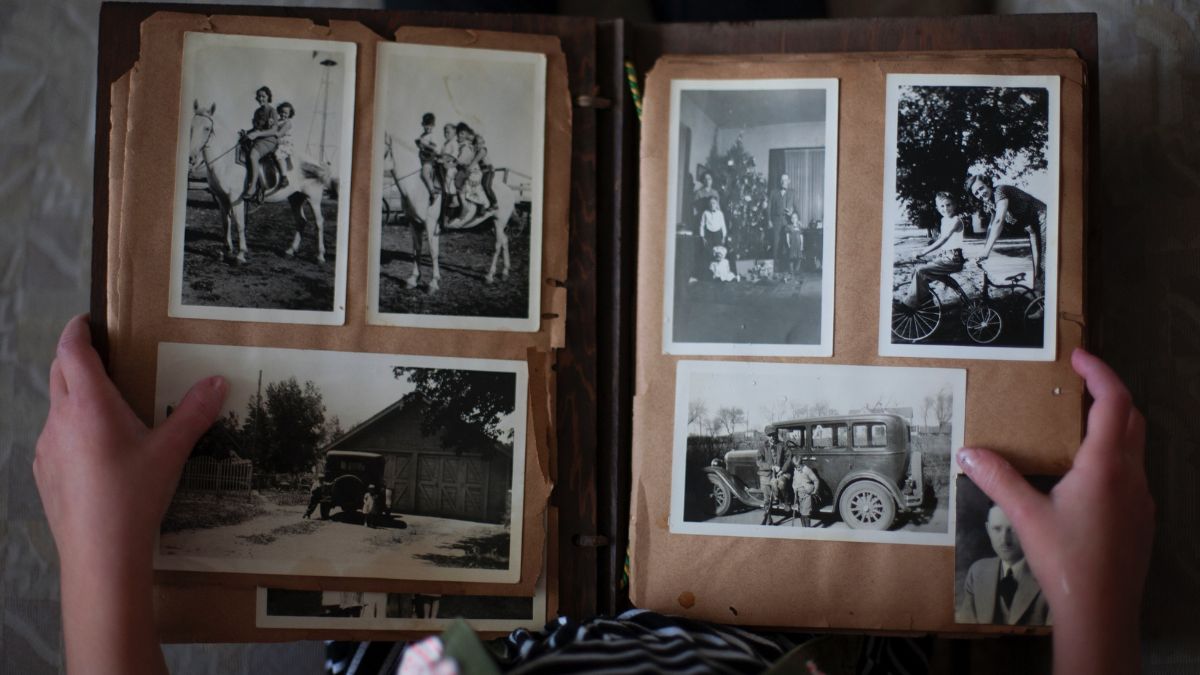Online Obituaries: Tips And Best Practices For Sharing Memories Online

Death is a natural part of life that we all must inevitably face. It is a time of mourning and reflection, as we remember the lives of those who have passed on. In today’s digital age, online obituaries have become increasingly popular as a way to honor and celebrate the lives of our loved ones. These virtual memorials allow us to share memories, photos, and stories with family and friends from around the world.
Online obituaries can be an effective way to preserve the memory of our loved ones for future generations. However, it is important to approach this process with care and sensitivity. In this article, we will provide tips and best practices for creating an effective online memorial that ensures both privacy and security while fostering a positive space for grieving and remembrance. Whether you are creating an online tribute for a loved one or simply looking for ways to better support those who are grieving, these guidelines will help ensure that your efforts are respectful, compassionate, and meaningful.
Honoring Your Loved One’s Life
One important step in the grieving process is to commemorate and celebrate the life of your loved one, which can be achieved through various ways such as sharing anecdotes, stories, and accomplishments. Online obituaries provide a platform for family members and friends to come together and share their memories of the deceased. By sharing stories and experiences, mourners can honor their loved ones in a meaningful way that highlights their unique personalities, passions, and contributions.
Sharing stories not only helps with the grieving process by reminiscing about happy times but also creates a sense of community among those who knew the deceased. By celebrating accomplishments such as personal achievements or charitable contributions made by the departed, it reinforces their legacy and provides comfort to those left behind. In addition to posting pictures or videos on an online obituary page, many families choose to create memorial pages on social media platforms where friends can leave condolences or share personal messages that speak to how much they will be missed.
Creating an Effective Online Memorial
Crafting a meaningful and impactful digital memorial requires careful consideration of the deceased’s life, values, and legacy in order to create an enduring tribute that honors their memory. One way to begin this process is by customizing templates or themes offered by online obituary platforms. These templates often provide a structure for organizing information about the deceased’s life, including their biographical details, family members, and achievements. By personalizing these templates with unique photos or messages that reflect the individual’s personality and interests, families can create a more authentic representation of their loved one’s life.
In addition to customizing templates, incorporating multimedia elements can also enhance the impact of an online memorial. This may include uploading videos or audio recordings of speeches given at the funeral service or displaying photo galleries that showcase important moments from the deceased person’s life. Furthermore, some online platforms allow for interactive features such as guest books where friends and family members can share memories and condolences. By utilizing these tools thoughtfully, families can create a comprehensive digital tribute that not only honors their loved one but also provides comfort to those who are grieving their loss.
Ensuring Privacy and Security
To ensure the privacy and security of the deceased person’s personal information, it is important to implement appropriate measures such as limiting access to the memorial page or using password-protected platforms. Protecting information is crucial in online obituaries, as they contain sensitive details about the deceased individual. Privacy settings should be adjusted accordingly, with only close friends and family members being given access to view or post on the memorial page.
Cybersecurity measures should also be taken into consideration when creating an online memorial. Passwords must be strong and unique to prevent unauthorized access. In addition, regular monitoring of activity on the memorial page can help detect any suspicious behavior or potential hacking attempts. It is also recommended that users refrain from including any personal information such as social security numbers or financial data in their online obituaries. By implementing these measures, a secure and private space can be created for loved ones to share memories and pay tribute to their departed friend or family member.
Fostering a Positive Space for Grieving and Remembrance
Creating a supportive environment for grieving and remembrance is essential in the context of digital memorials, as it allows mourners to connect with one another and honor the life of the deceased person through shared experiences, emotions, and reflections. To foster a positive space for grieving and remembrance online, it is important to encourage users to create meaningful tributes that reflect their relationship with the deceased person. This can include sharing stories, memories, photos, or videos that capture the essence of who they were and how they impacted others.
Moreover, supporting others in grief is an integral part of creating a positive online community. Mourners may feel overwhelmed by their emotions or unsure about how to express themselves in this new context. Therefore, it is crucial to establish clear guidelines for respectful behavior and compassionate communication on digital memorial platforms. This can be achieved through moderation policies that promote empathy and discourage negative comments or conflicts among users. By fostering a culture of kindness and understanding online, we can help alleviate some of the pain associated with loss and create lasting legacies for those we have loved and lost.
Frequently Asked Questions
Are there any legal requirements for publishing an online obituary?
When publishing an obituary, it is important to consider legal requirements and privacy concerns. In terms of legal considerations, there are no specific regulations for publishing an obituary online. However, it is important to ensure that the information shared is accurate and not defamatory. Additionally, if the deceased person was a public figure, there may be additional legal considerations related to their reputation or intellectual property rights. In terms of privacy concerns, it is important to obtain consent from family members before sharing any personal information about the deceased individual. It is also advisable to avoid sharing sensitive information such as cause of death or details about funeral arrangements unless explicitly authorized by family members. Overall, while there are no strict legal requirements for publishing an online obituary, individuals should exercise sensitivity and caution when sharing personal information about the deceased person in order to protect their privacy and honor their memory with respect and compassion.
Can I edit or update an online obituary after it has been published?
The act of editing an obituary can be seen as a symbol of the importance of timely updates. It is imperative that any changes made to an online obituary are done with sensitivity and respect for the deceased and their loved ones. While it may be tempting to make corrections or add information after the initial publication, it is crucial to ensure that all changes accurately reflect the individual’s life and legacy. Additionally, updating an obituary in a timely manner can help grieving family members and friends find closure and peace during a difficult time. Ultimately, editing an online obituary should be approached with care and compassion, recognizing its significance as a lasting tribute to a loved one’s memory.
How can I ensure that only family and friends have access to my loved one’s online memorial?
Privacy measures and access control are crucial when it comes to ensuring that only family and friends have access to a loved one’s online memorial. To achieve this, one can consider using password-protected memorial pages or setting up an account on a trusted memorial website that allows for privacy settings. It is also important to carefully consider who you share the memorial page with, as well as the level of information shared. By implementing these measures, family and friends can grieve and honor their loved ones in a safe and private space without worrying about unwanted outsiders gaining access. Overall, prioritizing privacy measures is an essential aspect of creating an online memorial that respects the wishes of the bereaved while honoring those who have passed away.
What are some ways to prevent spam or inappropriate comments on an online obituary?
When managing online memorials, it is important to consider the potential for spam or inappropriate comments. Moderation techniques can be employed to prevent such content from being posted publicly. These measures may include assigning moderators to approve all comments before they are published, utilizing language filters to flag potentially offensive words, and disabling anonymous commenting. Additionally, privacy concerns should also be taken into account when moderating online obituaries. It is essential to ensure that only family and friends have access to the memorial in order to protect sensitive information and prevent unwanted individuals from posting disrespectful comments. Through the use of effective moderation techniques and careful attention paid to privacy concerns, online memorials can serve as a respectful space for loved ones to share memories and honor their departed.
Can I include multimedia, such as videos or music, in an online obituary?
Including multimedia in an online obituary can be a way to honor and remember the deceased by showcasing their personality, interests, and memories. The use of videos or music can bring a more personal touch to the tribute, allowing family and friends to connect with the departed on a deeper level. However, there are also potential drawbacks that should be considered when including multimedia in an online obituary. It is essential to choose appropriate content that aligns with the values and beliefs of both the deceased and their loved ones. Best practices for selecting multimedia include reviewing it beforehand for appropriateness, avoiding controversial or offensive material, obtaining permission from those featured in the content, and ensuring it does not violate any copyright laws. Ultimately, incorporating multimedia into an online obituary requires careful consideration and respect for all involved parties.
Conclusion
In conclusion, online obituaries offer a platform for families and friends to honor their loved ones’ lives and create a positive space for grieving and remembrance. By following best practices such as selecting an appropriate forum, sharing meaningful memories, and ensuring privacy and security, individuals can create effective online memorials that celebrate the life of their loved ones. It is essential to foster a compassionate and respectful environment that facilitates healing during this challenging time.
As Mark Twain once said, “The fear of death follows from the fear of life. A man who lives fully is prepared to die at any time.” Online obituaries enable individuals to celebrate the rich lives of those they have lost in a manner that honors their legacy. Through thoughtful planning and attention to detail, these digital memorials can provide solace and support during times of grief.





